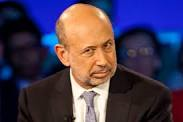The more it changes, the more it is the same, is a paraphrase of a French proverb, but in this interesting exchange between Senators and Wall Street executives in 2010, in this case Goldman Sachs, the issues of ethics, fiduciary responsibility, and conflicts of interest were aired for one of the first times in a public forum.
It’s a critical snapshot of Wall Street history.

As a result, this important video should be mandatory for everyone in the financial services industry.
Here is a transcript of other testimony, but the discussion with Senator Carl Levin (D-Mich.) has one of the more intelligent discussion of the role of fiduciary vs. conflicts-of-interest.
Levin tells Lloyd Blankfein that his own salespeople refer to the CMOs they were selling as “crap.” Blankfein never gets grilled like this inside Goldman, let alone in public.

(A word on Goldman Sachs CEO Lloyd Blankfein in 2010: – Amount of federal income taxes paid in 2008? $0. Instead, they got a $278 million tax refund. Taxpayer bailout from the Federal Reserve and the Treasury Department: $824 billion. Amount of federal income taxes Goldman Sachs would have owed if offshore tax havens were eliminated: $2.7 billion.)
And since this is an election year, it is no wonder Republican presidential candidates Donald Trump and Ben Carsen do not want to mention this event and whether they would seek criminal charges against Wall Street. The resulting recession of 2007 still ripples throughout the world and it is a major reason why free market capitalism, without regulation, is now suspect worldwide. This is an underlying cause of the rise in populism worldwide.
Senate Testimony of Goldman Sachs, April 27, 2010
Senators Ted Kaufman and John McCain, (R-Arizona), make short remarks. Mr. McCain says, “I don’t know if Goldman has done anything illegal.”
But, he says, “There’s no doubt their behavior was unethical and the American people will render a judgment as well as the courts.”
Senator Claire McCaskill, (D-Missouri), says: “It’s gambling, pure and simple, raw gambling. You are the bookie, you are the house.”
She continues: “You have less oversight than a pit boss in Las Vegas. It’s not just you. All of you were lemmings like you were chasing each other … You were chasing compensation, you were chasing your colleagues in other investment banks and you were trying to make a killing.”
Now, the four first witnesses stand and are sworn in. Goldman’s turn begins.
10:44 a.m.
Susan Collins (R-Maine) echoes Levin’s remarks on bad qualities contained in Goldman’s deals, even if they were legal. Collins said “even legal practices may raise ethical concerns.”
“There is something unseemly about Goldman betting against the housing market at the same time that it is selling to its clients mortgage-backed securities containing toxic loans. And it is unsettling to read emails of Goldman executives celebrating the collapse of the housing market when the reality for millions of Americans is lost homes and disappearing jobs.”
So far, no one has mentioned that in 2007, Goldman not only profited as a firm for its “big short.” The bank also was able to pay out huge bonuses to its workers and executives. The bank’s chief, Lloyd Blankfein, personally received nearly $70 million; a Wall Street record.
Of course, Mr. Blankfein took no bonus in 2008, when Goldman lost some money in mortgages. And he took all stock in 2009. But that 2007 figure pops out in just about any conversation you have on Wall Street pay. Mr. Blankfein will testify later today.
…different section of testimony—
Sen. Carl Levin (D-Mich.) refers to the S.E.C. complaint against Goldman. He says the S.E.C. and courts can figure out whether Goldman broke the law. What he is interested in is a question of “ethics and policy: Were Goldman’s actions in 2007 appropriate, and if not, should we act to bar similar actions in the future?”
“There seems to be confusion here,” Senator Susan Collins (R-Maine) concluded. She also proposed legislation that would impose a clear fiduciary duty on investment banks to work in the best interests of their clients.
Story from Marketwatch, 4-26-2010











